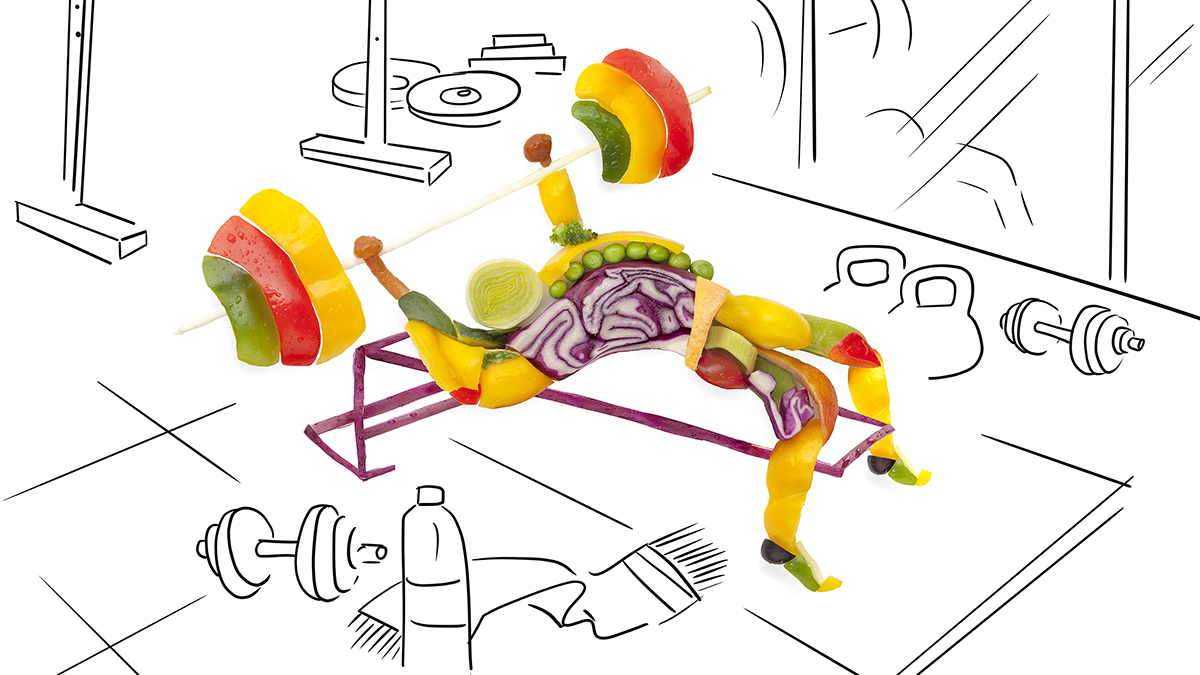In late 2019, an explosive new documentary called The Game Changers was dominating fitness industry headlines. Boasting the approval of Arnold Schwarzenegger, Novak Djokovic and Lewis Hamilton, the documentary claimed that peak athleticism could be attained on a plant-based diet—combatting long held studies about eating meat for muscle growth.
The documentary debuted when I was about a year into a new, self-formed fitness regime. As an ectomorph with a fast metabolism struggling to gain weight, I quickly realised that consistent daily training was only a part of fitness. As a result, I began an intense high-protein diet combined with large amounts of animal protein. My daily meals began to exceed the recommended daily protein intake (e.g. multiple chicken breasts each day).
However, there were drawbacks to eating so much meat. With each meal followed a feeling of heaviness and other gut-related issues.
After the release of The Game Changers, I was encouraged by a number of people who knew about my training to watch it. The documentary challenged many of the things I had researched, and later reading suggested that The Game Changers did in fact exaggerate some details whilst ignoring others. Nevertheless, it was intriguing enough to warrant further research.
One of my first follow-up points of study was the man who inspired my name. In Daniel chapter 1, my namesake and his friends were brought before King Nebuchadnezzar to be trained for royal service. The Bible says, “The king assigned them a daily amount of food and wine from the king’s table” (Daniel 1:5). Bible scholars say the royal food provided to the men was most likely largely meat-based. Daniel was insistent to instead trial a plant-based diet and prove to the king they would all be stronger. “Please test your servants for ten days: Give us nothing but vegetables to eat and water to drink” (verse 12). [pullquote]
Much like in The Game Changers, in which athletes trialled a plant-based diet and found an increase in strength, muscle recovery and testosterone levels, Daniel experienced similar benefits. “At the end of the ten days they looked healthier and better nourished than any of the young men who ate the royal food” (verse 15).
Like Daniel in the Bible, I had a new-found determination to test this theory—with a three-month trial akin to the one my ancient namesake did. Rather than switching to these foods because of moral outrage or a sense of elitism, I wanted to critically assess whether plants could be just as effective as meat for strength and lean mass gain.
A few weeks in, a few things became apparent. I felt a lot lighter, but I also felt more tired. Further research found I needed to supplement Vitamin B12, a key nutrient in the body’s energy production, as plant foods are not as rich in B12 as meat.
Possibly due to feeling lighter after meals, my training strength also increased. I started finding it easier to progressively overload weights. The recovery time in between sets didn’t need to be as long anymore. Whilst most plant-based people I know are generally very lean, I found no problem maintaining weight with 4-5 plant-based meals each day.
It must be said that though my challenge was inspired by the Daniel of the Bible, the scriptures don’t actually decry meat. In fact, Leviticus 11 outlines what meats we should and shouldn’t eat. The chapter is even more pertinent when you consider verse 18’s advice against eating bats. Scientific reports have linked the transmission of the current coronavirus (COVID-19) to the consumption of bats or pangolins. Though thousands of years old, the Bible clearly still has the answers for our modern eating habits.
I can’t recommend the plant-based diet for everyone, because I’m not a nutritionist. As someone who has been on a few different diets for specific outcomes, there is no “fix all” diet for every health problem. What I can recommend for those considering eating plants is to dare to be a Daniel—give it a try, whether it be 10 days or three months. The Psalmist David didn’t intend it in this context, but once wrote, “Taste and see that the Lord is good” (Psalms 34:8). And I can safely say, it is good indeed.






